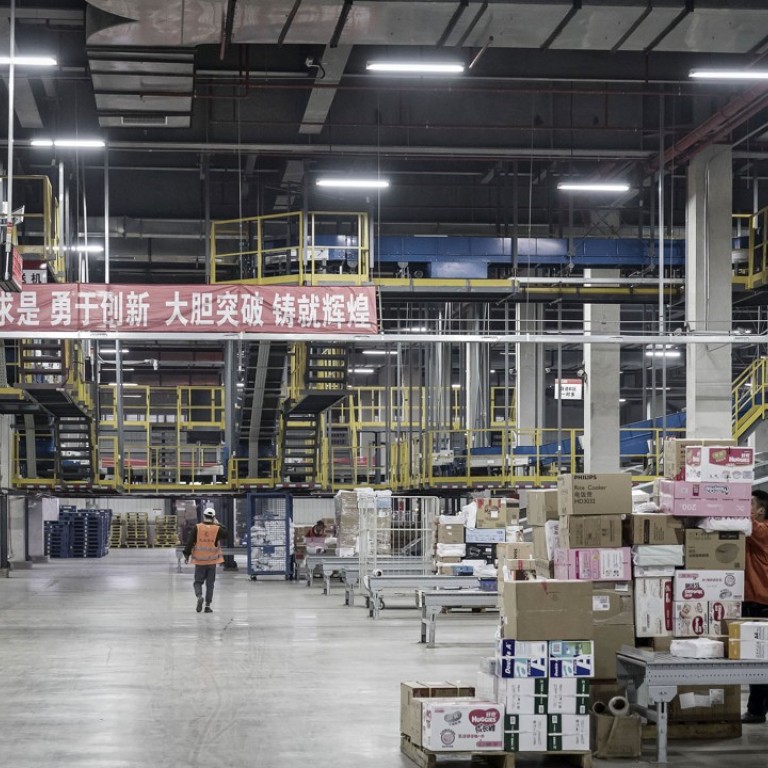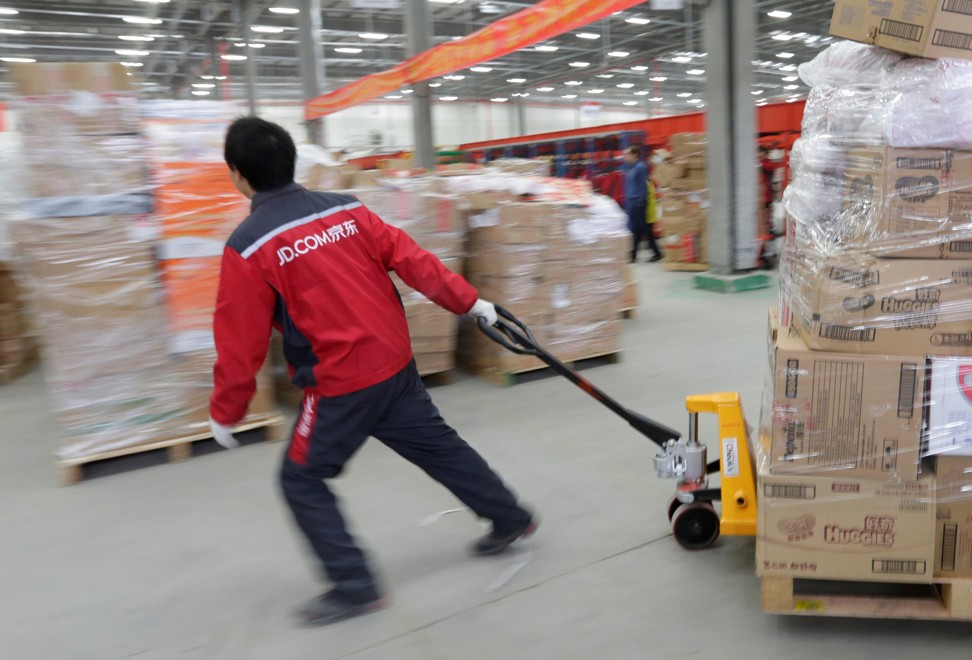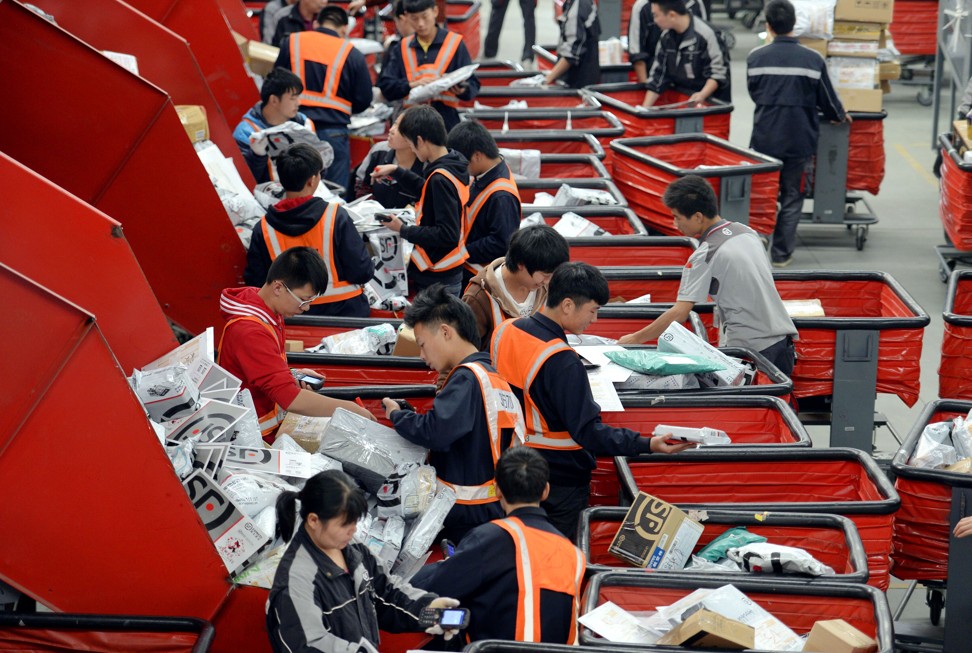
Is a boardroom spat brewing at China Logistics, amid the jostling for foothold in e-shopping boom?
Several China Logistics executives have said that ESR’s entreaty for a boardroom seat is ‘not an option’ because they compete for the same customers
Warburg Pincus, the US private equity firm that failed in the 2017 buyout of the world’s largest warehouse operator, has set its sight on China’s No 2 manager of logistics space, as it jostles to enlarge its footprint in the country’s booming e-commerce industry.
The firm’s e-Shang Redwood Group unit has bought 11.6 per cent of China Logistics Property Holdings since May 7, making ESR the third-largest stakeholder in the Hong Kong-listed warehouse operator, according to stock exchange filings.
With its stake valued at HK$1.1 billion at current prices, ESR wants to seek for a seat on China Logistics’ 15-member board, a bid aimed at exerting some influence to maximise the value of its investments, according to a source familiar with the matter.
For now, China Logistics has officially declined to comment, even though several executives have said a board seat for ESR is “not an option”.
“(ESR) is our competitor, it is not ideal if they become our board member,” said China Logistics’ executive director and chief financial adviser Kennth Cheuk Shun Wah, in an interview with the South China Morning Post in Shanghai. “How do we ensure our interest will not be eroded?”
ESR and China Logistics have common customers – as well as investors – between them. JD.com, China’s second-biggest online shopping company, uses the warehouses operated by both companies for its inventory, and owns 9.9 per cent in both.

Cainiao, the logistics arm of Alibaba Group Holdings – owner of this newspaper and operator of the world’s largest e-commerce platform – also uses warehouses run by both companies.
At stake is a boom in China’s logistics industry, which grew 6.7 per cent in the first 11 months of 2017 to 229.9 trillion yuan (US$35.38 trillion) in turnover, as more Chinese took to the internet to buy everything from clothing to fresh food, household furniture and even motor vehicles.
Online commerce, measured by gross merchandise volume (GMV), or the value of products transacted, could increase 7 per cent this year to 7.7 trillion yuan, according to a Credit Suisse’s forecast. Compare that with 2010, when e-commerce GMV was a mere 461 billion yuan, China’s online retailing has expanded 17-fold in eight years due to the proliferation of smartphone-enabled merchants and an advanced e-payment infrastructure powered by big data.
Founded in 2000 and listed in 2016, China Logistics operates 2.4 million square metres (25.8 million square feet) of warehouse space in 130 projects across 34 Chinese cities, with another 1.5 million square metres under development.
That is still a minnow compared with the 59 million square metres of space that Global Logistics Properties (GLP) operates around the world.
“We are the only national player in the sector after GLP, “ said China Logistics’ chief executive Peter Pan Naiyue, in an interview. “We attract big names as investors, because our values are not yet fully reflected since its listing.” He declined to comment on ESR’s entreaty.
The company’s biggest shareholder is its founder and board chairman Li Shifa, who controls 27.4 per cent of China Logistics through his Yupei International Investment unit. Asian private equity fund RRJ owns 16.4 per cent as the second-largest shareholder, while a unit of the Anbang Group owns 4.3 per cent. Sino-Ocean Group Holding, a Beijing developer, owns 8.87 per cent of China Logistics, as the fifth-largest shareholder.
Anbang, which is being managed by China’s insurance regulator after its chairman Wu Xiaohui was sentenced to 18 years in jail for financial fraud, declined to comment.

Warburg is one of the most aggressive logistics property investors in Asia. Last year, it made an unsuccessful bid to buy out GLP. The US$11.6 billion buyout, the largest takeover in Asia, was eventually won by a consortium led by GLP’s co-founder, joined by China Vanke, Goldman Sachs’ former China chairman and Chinese fund Hillhouse Capital.
Shares of China Logistics have risen by as much as 14 per cent in a week, jumping 5.7 per cent on Friday amid speculation that Warburg had met the management of Sino-Ocean. Both Warburg and Sino Ocean declined to comment.
Based on Tuesday ‘s closing price of HK$3.01 per share, China Logistics has a market capitalisation of about HK$9.76 billion (US$1.2 billion).
The entire company is worth more than double its market value, at about 16.76 billion yuan, Pan said, citing valuation by Colliers.

